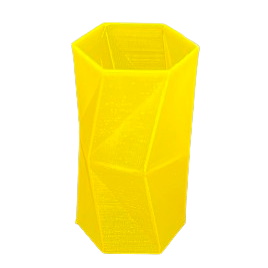Page Not Found
Page not found. Your pixels are in another canvas.
A list of all the posts and pages found on the site. For you robots out there is an XML version available for digesting as well.
Page not found. Your pixels are in another canvas.
About me
This is a page not in th emain menu
Relevant skills: Python, PyTorch, Computer Vision This is a pytorch implementation of Adaptive Instance Normalization (AdaIN) arbitrary style transfer, as outlined in Arbitrary Style Transfer in Real-time with Adaptive Instance Normalization by Xun Huang and Serge Belongie.
Relevant skills: Python, PyTorch, GTSAM, Docker We built a docker environment of NeRF-SLAM: Real-Time Dense Monocular SLAM with Neural Radiance Fields by Antoni Rosinol, John J. Leonard, and Luca Carlone. We replicate results in the paper, as well as test on our own datasets.
Relevant skills: Embedded Systems, Low-level C, STM32, UART, I2C A pair of omni-directional tilt-controlled STM32-based robots with motorized turrets for IR laser tag.
Relevant skills: Python, C++, ROS, MoveIt, Computer Vision, YOLOv5, Inverse Kinematics SNACBot is a 5-axis robot arm that autonomously feeds people snacks. It uses a gripper-mounted Intel RealSense depth camera and computer vision/machine learning techniques to find, grasp, and deliver food to a human.
Relevant skills: Python, GTSAM, ROS, SLAM, Docker This project implements underwater visual inertial SLAM as the final project for UM Robotics’ ROB 530: Mobile Robotics. The problem is formulated in GTSAM as pose-graph SLAM with ORB features for underwater landmarks. It was tested on a dataset collected by a BlueROV2 robot.
 Cable-Driven Origami Soft Robotic Crawler
Cable-Driven Origami Soft Robotic Crawler Relevant skills: Embedded Systems, MicroPython, Soft Robotics, 3D-Printing A soft robotic crawler that utilizes kresling origami, soft C-springs, and motor-driven cables for earthworm-style locomotion. The design was modeled after the guidlines for the RoboSoft 2023 pipeline crawling competition.
Published in IGARSS 2023, 2023
Previously, we developed a Multiple Instance Multi-Resolution Fusion (MIMRF) framework that addresses label uncertainty for fusion, but it can be slow to train due to the large search space for the fuzzy measures used to integrate sensor data sources. We propose a new method based on binary fuzzy measures, which reduces the search space and significantly improves the efficiency of the MIMRF framework.
Recommended citation: H. Vakharia and X. Du, "Efficient Multi-Resolution Fusion for Remote Sensing Data with Label Uncertainty," IGARSS 2023 - 2023 IEEE International Geoscience and Remote Sensing Symposium, Pasadena, CA, USA, 2023, pp. 6326-6329, doi: 10.1109/IGARSS52108.2023.10282851. https://arxiv.org/abs/2402.05045
Published in FUZZ-IEEE, 2024
This paper proposes a novel Choquet integral-based fusion framework, named Bi-MIChI, which uses bi-capacities to represent the interactions between pairs of subsets of the input sensor sources on a bi-polar scale. This allows for extended non-linear interactions between the sensor sources and can lead to interesting fusion results.
Recommended citation: H. Vakharia and X. Du, "Bi-Capacity Choquet Integral for Sensor Fusion with Label Uncertainty," 2024 IEEE International Conference on Fuzzy Systems (FUZZ-IEEE), Yokohama, Japan, 2024, pp. 1-10, doi: 10.1109/FUZZ-IEEE60900.2024.10611865. https://arxiv.org/abs/2409.03212